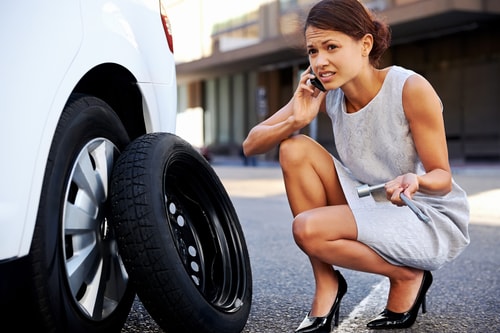Roadside safety in Southern California
West Tow of Menifee Suggests that you maintain and inspect your car properly
The long-awaited Winter season is here, and roadside safety in Southern California is most important as the weather changes. As we dive into the Christmas Season, most people will be taking road trips. Southern California is known for its mild seasons. Roads and weather can notoriously be horrid because drivers don’t experience extreme weather often. When unsafe weather arrives, it can cause many inexperienced drivers to cause accidents. Wet pavements and bad weather
West Tow believes roadside safety starts with you & your vehicle. Inspect your vehicle and ensure that it is safe. From the tires and brakes to lights and windshield. Tires should be inflated properly, with the right tire tread depth, (you will get better traction on wet roads with correct inflation). Tip: Consider a tread depth with a quarter inverted into the tire groove.
Windshield wipers that leave streaks should be replaced. Wipers should leave the glass clean with every wipe. Taillights, headlights, signals and brake lights should function adequately so that other drivers will see and notice you in stormy or foggy weather.
Slow down and keep a long range of distance from the car in front of you.
Hydroplaning is a rampant problem during wet weather. To avoid it, consider slowing down your car when necessary (wet roads, foggy conditions, heavy traffic). Remember, that your car tires will be displacing a gallon of water, for every second on a 1/12 inch of water depth, for the tires to meet the road surface. Lowering your driving speed can drastically reduce the possibility of an accident. A rate of only 35mph can make your new car tires lose contact with the road surface. Abstain from hard braking and sharp U-turns. Driving on the tracks of other vehicles is also dangerous on a road with poor visibility. Keep distance from other cars for ample stopping space.
Abstain from using cruise control on wet roads
While cruise control is an excellent feature, it is exclusively designed for use in dry season. When used in wet conditions, you risk losing the control of your car. You can improve traction on a slippery surface by lifting off the accelerator to lower your speed, but this won’t be possible if your cruise control is engaged. Disengage cruise control to help improve your safety in case of an emergency.

